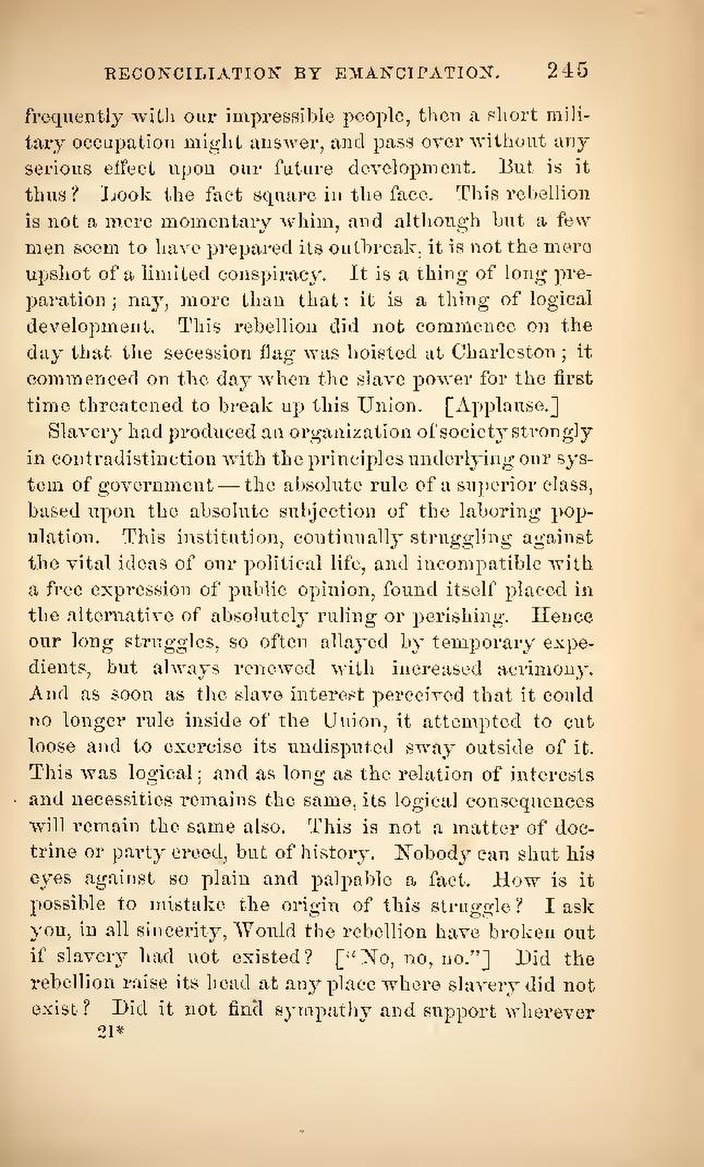frequently with our impressible people, then a short military occupation might answer, and pass over without any serious effect upon our future development. But is it thus? Look the fact square in the face. This rebellion is not a mere momentary whim, and although but a few men seem to have prepared its outbreak, it is not the mere upshot of a limited conspiracy. It is a thing of long preparation; nay, more than that: it is a thing of logical development. This rebellion did not commence on the day that the secession flag was hoisted at Charleston; it commenced on the day when the slave power for the first time threatened to break up this Union. [Applause.]
Slavery had produced an organization of society strongly in contradistinction with the principles underlying our system of government—the absolute rule of a superior class, based upon the absolute subjection of the laboring population. This institution, continually struggling against the vital ideas of our political life, and incompatible with a free expression of public opinion, found itself placed in the alternative of absolutely ruling or perishing. Hence our long struggles, so often allayed by temporary expedients, but always renewed with increased acrimony. And as soon as the slave interest perceived that it could no longer rule inside of the Union, it attempted to cut loose and to exercise its undisputed sway outside of it. This was logical; and as long as the relation of interests and necessities remains the same, its logical consequences will remain the same also. This is not a matter of doctrine or party creed, but of history. Nobody can shut his eyes against so plain and palpable a fact. How is it possible to mistake the origin of this struggle? I ask you, in all sincerity, Would the rebellion have broken out if slavery had not existed? [“No, no, no.”] Did the rebellion raise its head at any place where slavery did not exist? Did it not find sympathy and support wherever
